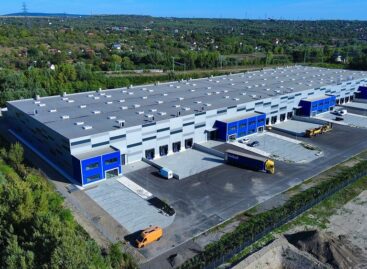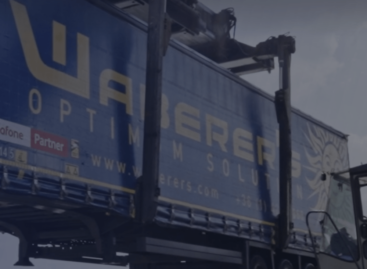Market overview: Hungarian freight forwarding has reached a turning point
The domestic transportation and logistics sector is trying to balance the digital revolution, sustainability expectations, the explosive growth of e-commerce and international economic challenges in a constantly changing environment. While industry players are competing with customer needs for innovation – real-time tracking, environmentally friendly solutions, zero waste logistics – increasingly acute problems are lurking in the background: labor shortages, infrastructure deficiencies, drastically rising operating costs, global supply disruptions and increasingly complex customs and trade regulations. The future of the sector no longer depends only on vehicles, but also on data-driven decisions, artificial intelligence and proactive capacity management.
Cost spiral and regulatory avalanche in transport: new rules of the game, new survival strategies
 The CO₂-based toll system introduced at EU level is not only reforming pricing, but is also forcing carriers to rethink their entire fleet strategy. At the same time, the hectic movement of fuel prices and the increase in tolls require a constant re-planning of operating costs. The January 2024 amendment to the Road Transport Act updated the legal framework, while the introduction of the Mandatory Redemption System (DRS) has integrated new actors and processes into the supply chain. In addition, the EU sanctions packages implemented in the wake of geopolitical crises have resulted in new customs and licensing processes, which not only take time but also add extra costs. On top of all this, ESG expectations and CO₂ quotas are no longer high-sounding PR messages, but rather specific supplier expectations and tender conditions.
The CO₂-based toll system introduced at EU level is not only reforming pricing, but is also forcing carriers to rethink their entire fleet strategy. At the same time, the hectic movement of fuel prices and the increase in tolls require a constant re-planning of operating costs. The January 2024 amendment to the Road Transport Act updated the legal framework, while the introduction of the Mandatory Redemption System (DRS) has integrated new actors and processes into the supply chain. In addition, the EU sanctions packages implemented in the wake of geopolitical crises have resulted in new customs and licensing processes, which not only take time but also add extra costs. On top of all this, ESG expectations and CO₂ quotas are no longer high-sounding PR messages, but rather specific supplier expectations and tender conditions.
New expectations, new logistics standards: customers dictate
Customers in the transport sector – especially those in the FMCG market – are setting increasingly clear expectations. Just-in-time logistics, real-time tracking and data-driven reporting are now basic expectations. Supplier flexibility has become a key factor in adapting to rapidly changing needs, while sustainability aspects – especially green solutions that align with ESG guidelines – have become not only a reputational but also a business requirement.
“At Trans-Sped, we pay special attention to flexible adaptation to customer needs. Our service portfolio includes short-time delivery, safe handling of temperature-sensitive goods, and fast-turnaround warehouse logistics supported by cross-docking and warehouse robotization. POS service from the distribution center, just-in-time distribution, and our B2B and B2C models all support “On Time In Full” (OTIF) fulfillment.”
– said Orsolya Seres, Head of Domestic Transportation at Trans-Sped.
Related news
Appeninn expands its portfolio with a logistics center in Poland
🎧 Hallgasd a cikket: Lejátszás Szünet Folytatás Leállítás Nyelv: Auto…
Read more >Waberer’s will replace around 1,000 devices in its vehicle fleet this year
🎧 Hallgasd a cikket: Lejátszás Szünet Folytatás Leállítás Nyelv: Auto…
Read more >Related news
The Store of the Future opens again at the SIRHA Budapest exhibition! (Part 3)
🎧 Hallgasd a cikket: Lejátszás Szünet Folytatás Leállítás Nyelv: Auto…
Read more >Amikor a megszámlálhatatlan megszámlálhatóvá válik
🎧 Hallgasd a cikket: Lejátszás Szünet Folytatás Leállítás Nyelv: Auto…
Read more >New country director at the helm of JYSK Hungary
🎧 Hallgasd a cikket: Lejátszás Szünet Folytatás Leállítás Nyelv: Auto…
Read more >








